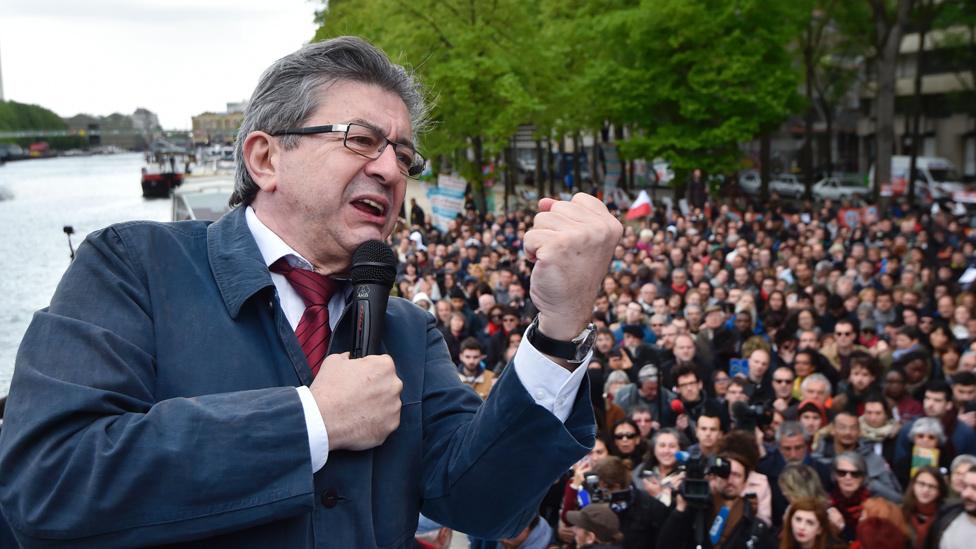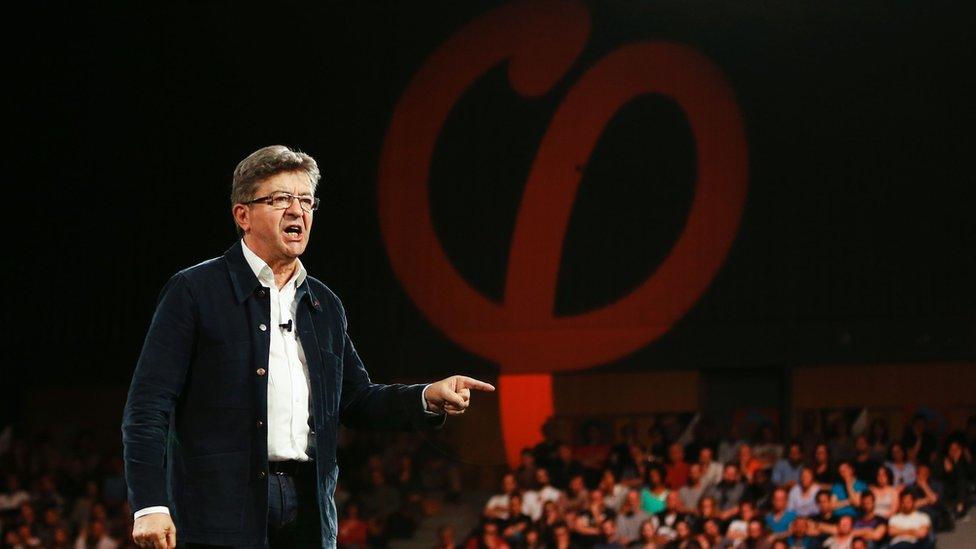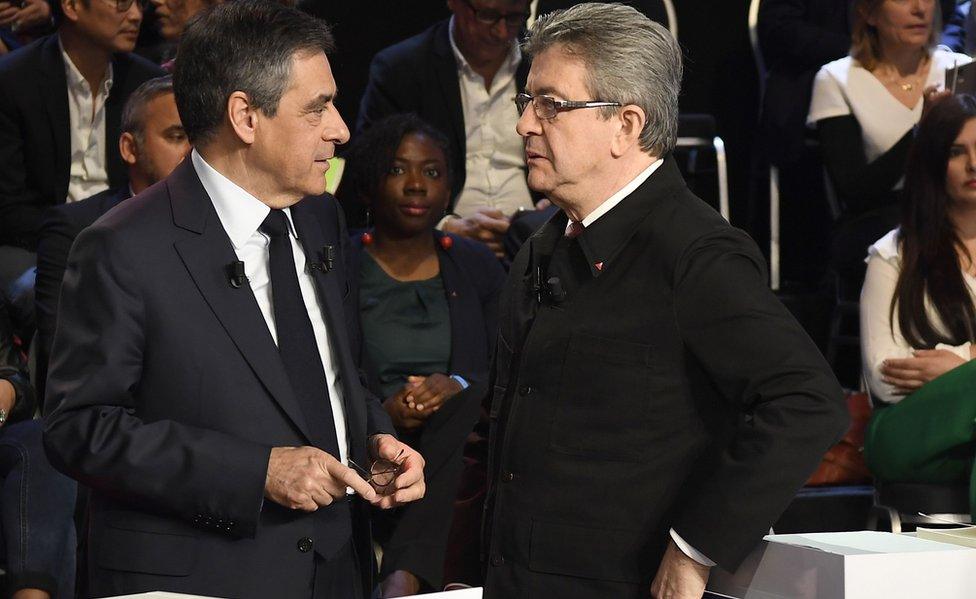Jean-Luc Mélenchon galvanises left in French election
- Published

In an innovative campaign Mr Mélenchon addressed Parisians from a barge
Is it the mellowing of age? Is it a return to an original kinder self? Or is it all part of a brilliant pre-election re-make?
No-one knows the answer, but everyone understands the question. Something has changed in Jean-Luc Mélenchon.
At the last election in 2012 he was the far-left candidate who ate quote-hunting journalists for breakfast. He fulminated and he fumed. Supporters loved him, but most of the population took fright.
He got 11%.
This time around France's scourge of capitalism is as sharp as ever with his tongue. But gone is the hate and the wall-to-wall vituperation. Instead, he plays on another rhetorical chord, which is humour.
The snarl has been replaced by the smile, and the Mélenchon ratings have gone through the ceiling.
For his critics this is disconcerting, because behind the new-found charm they see the same irresponsible firebrand as first stormed out of the Socialist Party (PS) nearly a decade ago.
Veteran of the left
Born in Tangiers in 1951 of Spanish-Italian extraction, Jean-Luc Mélenchon had a career in teaching and journalism before launching himself into Socialist politics in the late 1970s.
Gravitating to the left of the party, he served briefly as junior education minister under Prime Minister Lionel Jospin. In 2002 he co-founded a movement, Nouveau Monde (New World), which attacked what it saw as the Socialist party's rightward drift.

Jean-Luc Mélenchon chose the distinctive Greek letter phi as his movement's logo
He voted against the EU's proposed constitution in 2005, on the grounds that it would turn market capitalism into a permanent state of being. Three years later he decided the Socialists had become a party of sell-outs, and left for good.
After setting up a new Parti de Gauche (Left Party), he was elected as a Euro MP in 2009 in an alliance with the Communists.
Now he is once again backed by the Communists in this, his second presidential campaign. But he eschews traditional party affiliations. Instead, his movement is called La France Insoumise (France unbowed), and its symbol is the Greek letter phi (from the initials of the movement).


State investment
Jean-Luc Mélenchon's programme has changed little from 2012. He wants the presidential system of the Fifth Republic to be replaced by a government more directly answerable to parliament.
He wants a €100bn (£84bn; $107bn) state investment plan; a top tax rate of 90%; retirement at 60; a 32-hour working week; 200,000 new state-paid jobs; and a ban on firing workers when companies are making profits.
He wants to renegotiate the EU treaties so that the European Central Bank answers to political, rather than purely monetary, interests; and an end to so-called "austerity" rules that put limits on national deficits.
He would leave Nato and the IMF, and even bring France (via its territory of Guyane) into the little-known Latin American union Alba (Bolivarian Alliance for the Americas), which was set up by Cuba's Fidel Castro and Venezuela's Hugo Chavez.

Mr Mélenchon (R) wears a worker's jacket with a red triangle on the collar, a symbol worn by communists deported by the Nazis in World War Two
Jean-Luc Mélenchon's manifesto is immediately recognisable. But this time the sales pitch is different.
The old iconography has disappeared. The red flags no longer fly at rallies, and he has ditched the singing of the Internationale. He refuses to be described as far-left, and does not even mind the term populist.
Wooing young voters
His communications team has been masterly.
Jean-Luc Mélenchon appeared in seven places at once
In popular YouTube videos he speaks directly to voters, defying the quick-click culture with detailed lectures on economics.
His smartness of phrase was a hit in the presidential debates. The jibe, not the insult, is now his strength.
But the pièces de résistance, certainly from the PR viewpoint, have been the hologram rallies, in which he has appeared simultaneously in venues hundreds of kilometres apart, striding the stage in his old-fashioned teacher's jacket and expounding on the evils of the system.
Some critics argue the whole Mélenchon campaign contains an element of the hologram: his proposals are insubstantial because they are totally unrealistic.
The skill has been in the communication, in articulating and spreading a message that many people, clearly, are very happy to hear.